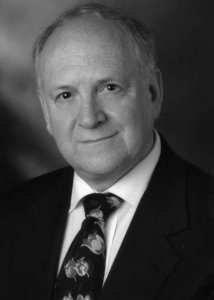
Patrick Armstrong
Patrick Armstrong is a former political counselor at Canadian Embassy in Moscow
My readers will have observed that I talk about Georgia a lot when ostensibly talking about Russia. There’s a reason: for two decades Georgia has been the favourite stick with which to beat Russia; for two decades we have been told Moscow is trying to eat Georgia; for two decades Georgia has been the contrast to illustrate what Russia could be if it weren’t so Russian; for two decades Georgia has been painted as the victim of Moscow’s worst impulses; for two decades Westerners have believed everything from Tbilisi and nothing from Moscow. A cornerstone of the anti-Russia edifice indeed and the "mine canary” of Russian intentions.
For two decades Russia has been interpreted through memes; assumptions deemed so true as to need no evidence; assumptions that reveal the facts that prove them; assumptions so resistant to reality that they create reality; assumptions that are non-falsifiable. Of the many memes three important ones are: Moscow wants its empire back; Moscow wants to control energy routes; Moscow hates democracies. Georgia was the perfect demonstration: formerly part of that empire, it had a pipeline route and was a stout democracy. QED. Facts were hammered to fit the memes. I have set the larger argument out in The Fire Below ($10 e-book).
We were told three things about Saakashvili’s Georgia (Shevardnadze, fêted in his day as a great democrat, was immediately forgotten). It was a true democracy improving in all ways, as true democracies should, not least economically; Saakashvili had courageously taken a serious bite at corruption; Georgia was a true ally of the West – worthy indeed of NATO membership and a proud contributor to the War on Terror. These Georgian merits were contrasted with Russian deficiencies: Georgia was a democracy, Russia wasn’t; Georgia was overcoming corruption, Russia was sunk in it; Georgia was an ally, Russia was an enemy, of us but especially of our new Georgian friend. Western media, Western politicians lapped this stuff up.
Until August 2008. Many noticed that Moscow had its chance to do what it supposedly wanted to: its victorious army was on the ground; the Georgian army had fled; the West was flubbing. But it didn’t: didn’t seize Georgia, didn’t seize the pipeline, didn’t drive to Tbilisi and overthrow the government. The memes were shaken. The August 2008 War shattered Saakashvili’s veracity, bona fides and reliability. I and others have written much about this; three references will suffice. As the war changed from the expected victory march into a disaster, Saakashvili’s explanations became ever less credible. The US Embassy, despite a serious clue, swallowed Saakashvili’s story whole. Even the exquisitely precious EU report scoffed at Saakashvili’s stories. Altogether an embarrassing display of the West’s credulity and one better forgotten.
As it pretty well has been forgotten.
But the new government is proving to be a much more effective destroyer of Saakashvili’s cornerstone myths of democracy, anti-corruption and reliable ally. Based on the large opposition Saakashvili created over the years (his adulators seldom noticed how many former colleagues and allies had given up on him), members of the new government know reality better than Western consumers of Saakashvili’s propaganda. And ordinary Georgians, living in that reality, overwhelmingly support the new government and approve its actions as this poll, carried out in April by a Swedish organisation, shows.
Democracy. Objective observers had already observed the improbable turnout figures for Saakashvili’s first election after the "Rose Revolution”. The OSCE described enough finagling in its 2008 report to have given Saakashvili the three or four percentage points he needed to avoid a runoff election against a single opposition candidate. In a case that even the Saakashvili-worshiping media could not ignore, an anti-government demonstration was suppressed with far more violence (and a remarkable array of expensive technology, paid for by whom?) than we have ever seen in Moscow. Critical media outlets were squashed – in one famous case, by armed police in mid-broadcast. The media was tightly controlled. Georgia had political prisoners in its over-stuffed prisons. Not so "democratic” after all.
personal expenses. Charges and arrests are coming: two of Saakashvili’s allies; the Mayor of Tbilisi; a governor. A couple of days ago the former Prime Minister and former Health Minister were arrested; the charges include election-fixing and several other crimes. There is a gigantic disparity between the claimed growth rate and the staggeringly high unemployment rate: the survey mentioned above has nearly 50% claiming to be unemployed and looking for work. I can think of only two ways high growth can be consistent with spectacular unemployment rates: either the growth is a façade of luxury hotels and other fripperies or corruption and cronyism have kept the money locked in a tiny group of connected people.
Ally. There have long been stories that Tbilisi was encouraging, training and/or hosting jihadists. A claimed conference in December 2009, Russian accusations; a former Georgian parliamentarian summing up more assertions. Formerly, I filed these away in the "possible but not proven” file. In August 2012 several Georgian soldiers were killed in a firefight; the official story was that it was an operation against kidnappers who had infiltrated from Dagestan in Russia. But today’s Public Defender has a different theory: he says the "armed group, involved in the clash, was formed, armed and trained by then leadership of the Georgian Interior Ministry, which recruited members of the group mainly from Chechen exiles by promising them to give free passage to Russia’s North Caucasus via Georgia.” Both Prime Minister Ivanishvili and the US Ambassador (made suddenly wiser by the Boston Marathon bombing) think this accusation should be investigated. Just what would such an investigation find? And, more interesting, would any of Saakashvili’s loyal sponsors in Washingtonhave been aware of this?
And there are more questions still. Ivanishvili thinks the August 2008 war should be investigated; Saakashvili, of course, does not. Will the death of Zurab Zhvaniabe satisfactorily investigated? there are those who think he was murdered. Will we ever find out who paid for the significant number of weapons Georgia acquired under Saakashvili? (From Ukraine 12 2S3 152mm self-propelled guns, 40 BMP-2 IFVs, 23+ BTR-80 APCs, 6 Mi-24P/Mi-35P/Hind-F combat helicopters, 2 Mi-8/Mi-17/Hip-H Helicopters, 16 T-72 Tanks, 1 9K33 Osa/SA-8 Mobile SAM system, 48 9M33/SA-8 Gecko SAMs. It obtained from the Czech Republic, over the same time, 55 T-72 tanks, 24 Dana 152mm self-propelled guns, 6 RM-70 MRLs and 55 guns or large mortars.) None of these (well, OK, maybe the HIPs and BTRs) is appropriate to the alleged purpose of the US training scheme. Will we ever learn the inside details of the "Rose Revolution” that brought Saakashvili to power in the first place? And how about Georgia as a conduit of efforts to de-stabilise Russia? (Fanciful? Read this Dear Reader and ask yourself, if you think it credible: Georgia has no money, from where did it get the sums Lebedev is talking about?) It’s all melting away.
Washington’s schemes for Russia and its neighbours are not looking so good now. The "Orange Revolution” is dead and Ukraine will not be joining NATO (not that Ukrainians ever wanted to in the first place). The "Tulip Revolution” was always DOA. Putin turns out to have been telling the truth when he said Chechnya was a jihadist war. Russians still prefer Putin to the oppositionistsby a substantial margin. Moscow has checkmated the foreign N"G”Os by replicating Washington’s own law designed at a time when powerful foreign interests were trying to sway American opinions. The Russian economy is still in business. Latest news suggests Washington has accepted Moscow’s line on Syria; namely that Assad and his government cannot be excluded if there are to be meaningful talks.
And Georgia’s "Rose Revolution” was a sham: not democratic, not incorruptible, not an ally. Believers were manipulated. As were the Georgians, who have had a pretty wretched time of it since 1989.



_jpg/250px-ElbeDay1945_(NARA_ww2-121).jpg)







